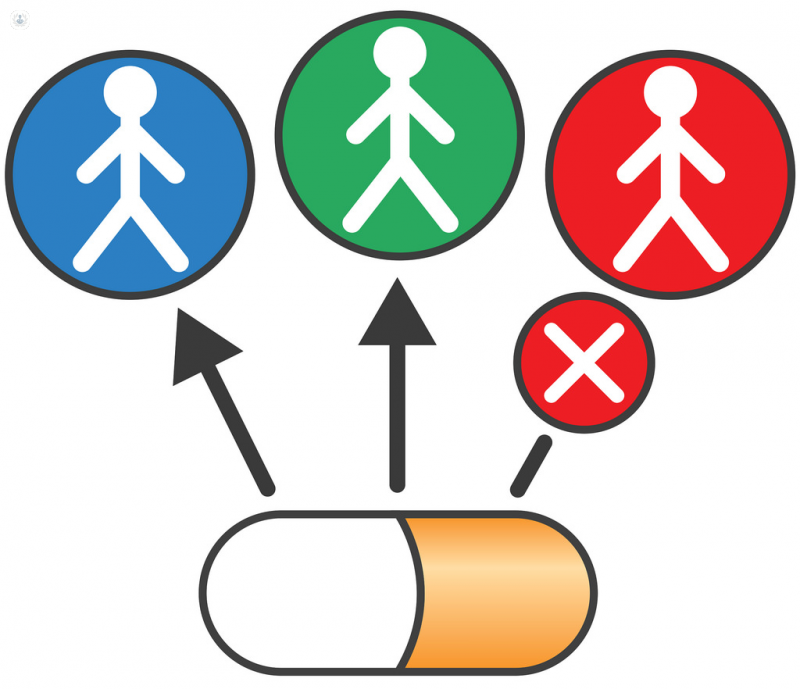Personalised medicine
Dr Mark Tuthill - Medical oncology
Created on: 09-04-2018
Updated on: 08-03-2023
Edited by: Kate Forristal
What is personalised medicine?
Personalised medicine is a medical model that emphasises the importance of tailoring treatment to each individual patient according to their needs and circumstances. While this idea has existed for centuries, modern personalised medicine aims to use all the information available, including genetic analysis of the patient, using technological and scientific advances in genome sequencing. Another component of 'personalised medicine' is what is known as 'molecular profiling'. Molecular profiling is the process of classifying tumours, for example, based on their genetic profiles. This in turn helps to inform on how well that tumour might respond to certain therapies, as well as indicating the best way to treat that type of cancer.

Why is personalised medicine needed?
The philosophy of personalised medicine is that each person’s health is determined by a unique set of factors, including their individual genetic make-up, their lifestyle, and their environment. This means that, as we are all different, a treatment that works on one patient may not work for another with different circumstances.
What does personalised medicine involve?
Because of the inherent differences between each individual, personalised medicine analyses information about a patient’s genome and combines this with other clinical and diagnostic information to allow doctors to identify health risks for that patient, catch diseases early, and find the most effective treatments for that individual.
Benefits of personalised medicine
The traditional “one size fits all” approach of most healthcare systems can fail some patients if they do not respond to a particular treatment due to an unusual genetic, lifestyle, or environmental factor. Even normal differences, such as age, can have a bearing on the efficacy of a certain drug. Personalised medicine represents a move away from this approach. By recognising that each patient’s health is different and that factors such as genetics can mean that different patients respond differently to different treatments, doctors can analyse each patient’s unique set of circumstances to optimise treatment. In theory, this should lead to better outcomes for patients.













